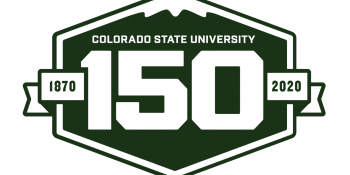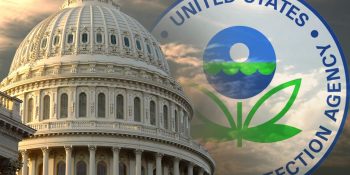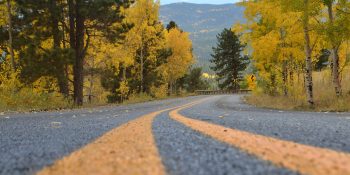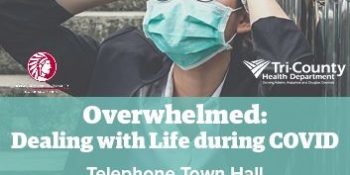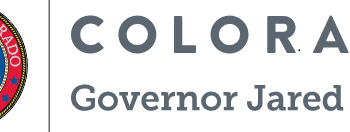A full-length documentary about the history of Colorado’s land-grant university, produced in honor of Colorado State University’s 150th birthday, has been completed and will air on Rocky Mountain PBS at 8 p.m. on Oct. 1.
The documentary, titled The Great Experiment: CSU at 150, was originally expected to be screened on campus last spring, but the COVID-19 pandemic prevented that and delayed its release. After its debut, the film is expected to be rebroadcast by Rocky Mountain PBS in the coming months; it will also be available for streaming anywhere in the world from the RMPBS website. Details will be posted on the station’s online programming schedule.
Longtime CSU donors Jackie Erickson and Ed Warner, an alum of the college that now bears his name, championed the documentary project and were instrumental in gathering support from campus leaders to bring the film to life.
Producer Frank Boring said making the documentary for the university’s sesquicentennial celebration was rewarding because it revealed the long-standing character of the institution.
“If you look back at CSU’s 150 years, all of the trials, tribulations and tragedy, it really came down to us doing the best we could for our students,” he said. “We always tried to do the right thing.”
Highlights
As outlined in the “Reel CSU Stories” series published during the 2019-21 academic year in the lead-up to the documentary’s release, Boring and his team unearthed some video gems, including footage of a 1919 football game in Fort Collins that shows former mascot Teddy the Bear on the sidelines and riding in a car after a resounding 49-7 victory over the University of Colorado.
But for Boring, the highlight of making the documentary was doing the interviews. He said one of the best conversations he had was with Yufna Soldier Wolf, former director of the Northern Arapaho Tribal Historic Preservation Office and descendant of some of the first inhabitants of the land on which CSU and Fort Collins sit.
“I felt this was an important piece, to have the Native American voice, and we were fortunate to find someone whose family had actually lived on this land,” Boring said.
Other good interviews included his conversation with a World War II veteran and alumnus who enlisted after hearing about the bombing of Pearl Harbor from fellow students as he was riding his bike up to the “A” for a picnic. Boring also got to discuss the elms on the Oval with the city’s first arborist, former horticulture professor Carl Jorgensen, about a month before Jorgensen died.
Pat Burns, who retired as dean of libraries and vice president for information technology in 2019 after 41 years at CSU, told Boring about the early days of computing, and how some questioned at the time why anyone would ever want to have a personal computer on their desk. And he talked about campus accessibility improvements with Rosemary Kreston, who retired in May after serving as director of the Student Disability Center for 40 years.
Hughes and Mosley
He also interviewed CSU historians about some of the university’s legendary leaders, like former football coach Harry Hughes, who brought on the team’s first recorded African American football player, John Mosley, in 1939. While in Salt Lake City for a game, Boring recounts, the team was at a movie theater when an employee told Mosley that Blacks had to sit in the balcony. When Hughes heard that, he marched the whole team out of the theater.
“That was a brave thing to do at that time,” Boring said. “There are a lot of things that CSU should be proud of that moved equality and fair play forward. I think the various presidents, administrators, faculty and staff really tried to move CSU ahead in that regard.”
He said the documentary could not have been made without the other members of his team, including audiovisual preservation specialist Bryan Rayburn as well as Blake Miller and Rob Aukerman of CSI Film and Video.
“I also want to commend Gordon ‘Hap’ Hazard, Vicky Lopez-Terrill and James Hansen, who were the final checkers of the film,” Boring said.
In addition, at the CSU Libraries Digital and Archive Services, staff and students invested hundreds of hours in preparing and processing materials for preservation and access, including reviewing the digitized film, creating essential metadata, and editing transcripts for more than 600 items. University Archives will make the film available for use once it has aired on RMPBS.
Boring said that while a lot of work has been done to preserve the thousands of tapes and films in CSU’s archive, much work still remains.
“This process brought to light the fact that we have a lot of old footage that needs to be identified, labeled and digitized,” he said.
A new ending
Boring also said the arrival of COVID-19 changed the way the documentary concludes: He added footage about CSU’s response to the pandemic, including coronavirus research efforts and a portion of President Joyce McConnell’s video address announcing the shift to remote learning in late March.
Boring said he looks forward to having the documentary screened on campus at some point in the future.
“I think a lot of people will be pleased to find out things they never knew about CSU,” he said of the film. “I hope this gives the current generation of students some perspective on the history of their university.”
SPREAD THE NEWS
COMMENT, Like, Follow & SHARE @I70Scout


